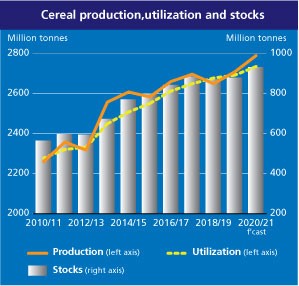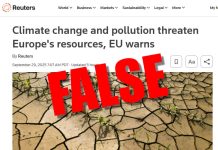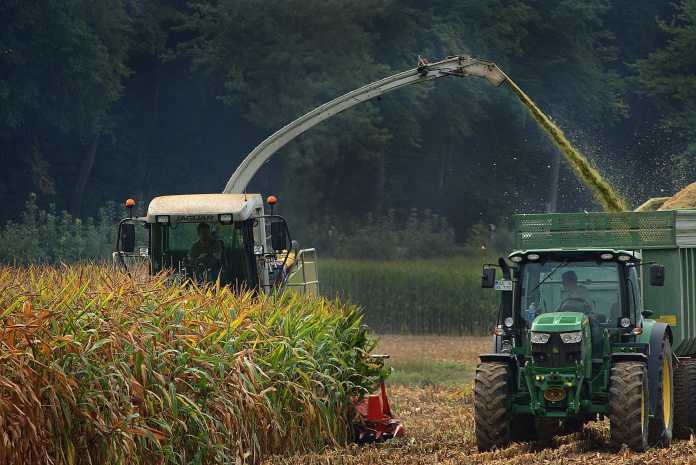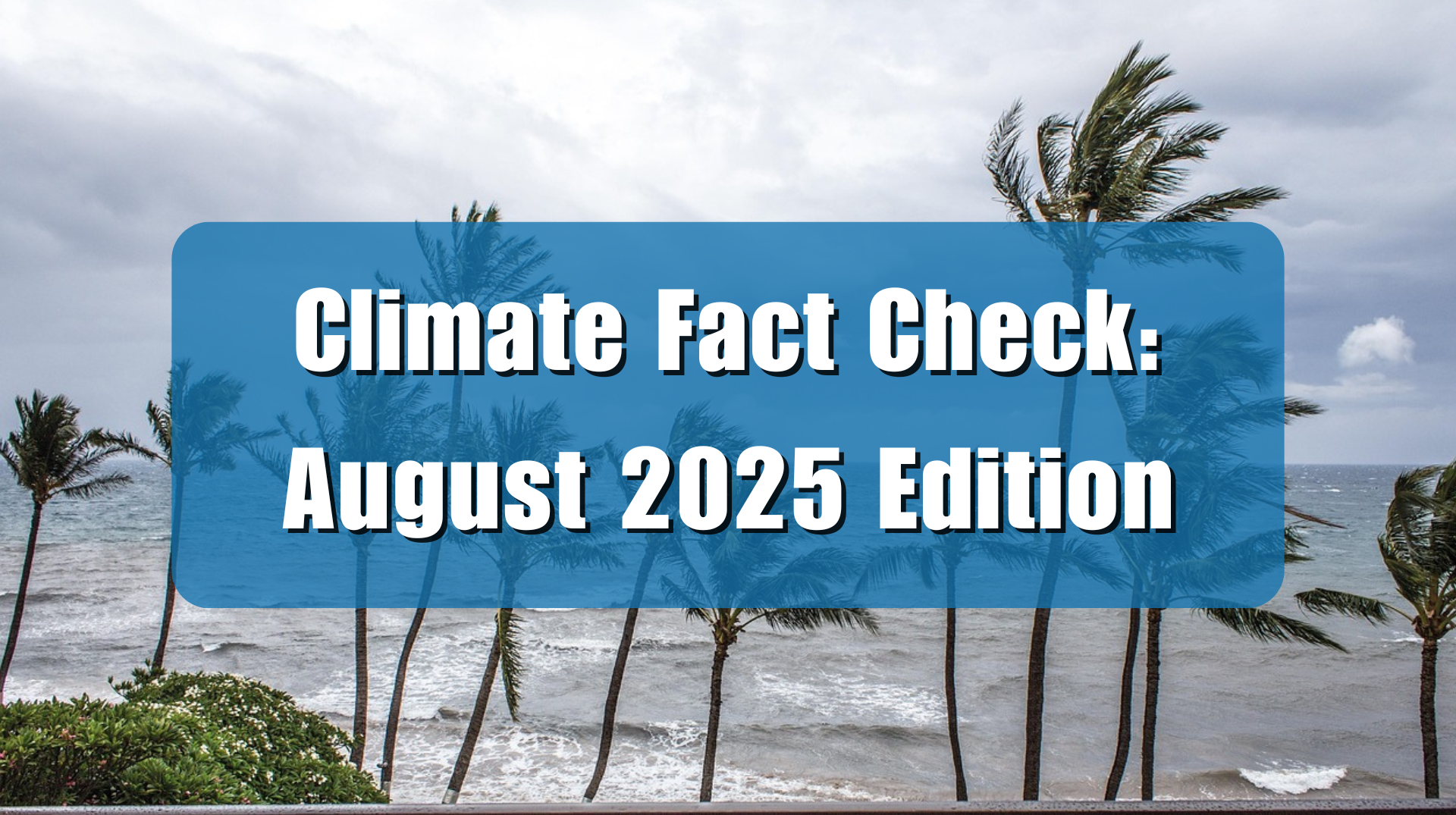Among the top Google News search results today under “climate change” is a story in Environmental Health News (EHN) claims climate change will decimate global crop yields. However, real-world crop data show crop yields are dramatically rising, not declining, as the Earth modestly warms.
The EHN article, titled “Climate change will continue to widen gaps in food security, new study finds.” reports on a recent study in which researchers claim crop yields are declining. The study also claims “food insecurity” — hunger and malnutrition among the poorest peoples around the world — is getting worse. Using computer model projections of future temperatures, the researchers say farmers will find it difficult to maintain current yields of the “18 of the most farmed crops … that, all together, represent 70 percent of global crop area and around 65 percent of global caloric intake.”
Regardless of what the EHN-referenced study says, real-world data show crop yields are rising, not declining. Climate at a Glance: Crop Production documents that global crop production for the three most important cereal crops – corn, wheat, and rice – set records in 2019. This builds on previous records set nearly every year during the preceding decade.
Almost every important U.S. crop has set record yields per acre during the past three years, as well, with most of the top 10 years in yields-per-acre occurring during the past decade.
Indeed, Climate Realism has documented and debunked many of similarly ridiculous media claims that climate change is decimating crop production (see here, here, here, here, here, here, here, and here, for example). Global crop production, as well as crop production in most of the world’s nations, set new records virtually every year as our planet modestly warms.
Still more new crop records are forecast for this year. The online agriculture news service World-Grain.com recently published a story, “IGC projects record output for corn, wheat and soybeans,” highlighting the International Grains Council’s findings that it expects record global yields this year for the key cereal crops of corn, rice, soybeans, and wheat.
Also, he U.N. Food and Agriculture Organization’s (FAO) database demonstrates increasing levels of carbon dioxide are helping crop production to boom.
And contrary to the claim made by the researchers cited in the EHN story that food insecurity is getting worse, the FAO reports food utilization and food stocks continue to grow as well (see the figure below). The FAO’s data mean even as more people are eating better as crop yields continue to surpass prior production.

Global warming lengthens growing seasons, reduces frost events, and makes more land conducive for crop production. Also, carbon dioxide is an aerial fertilizer for plant life. These factors combined have resulted in the largest decline in hunger, malnutrition, and starvation in human history.
Although 700 million people worldwide still suffer from persistent hunger, the United Nations reports the number of hungry people has declined by two billion since 1990.
Climate models may be programmed to predict doom and gloom, but no amount of climate models can hide the fact that global crop yields set new records virtually every year in response to beneficial ongoing warming.
























10-6-20 good information. however the claim has been made that the nutritional value per volume is reduced even if the plant is bigger. Is that true? Thanks,David H. Jackson,md
This is true, because usually there’s more water inside the plant. This is also the case with big grapes. Many westerners are fooled into thinking that grapes that are bigger are better, especially Americans since that seems to be our motto, but in reality those grapes simply have more water, nothing else extra; they don’t make more protein, sugar, fiber, nutrients, anything else. If anything, climate change, increasing the C02 in the air, makes it less important for it to have good nutrients; think of people eating junk food instead of a good balanced diet. Also, I don’t know how I feel about this website, since they actually have an article called “CO2 is not a pollutant”. Of course it isn’t directly, but that doesn’t mean it isn’t exacerbating our climate change. I’m pretty sceptical of this website.